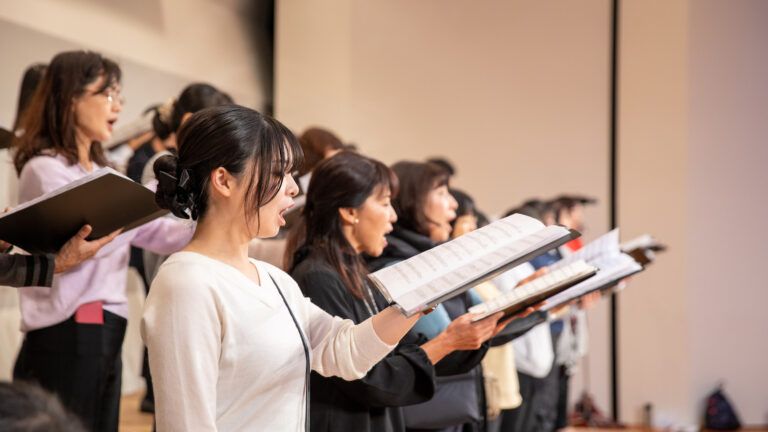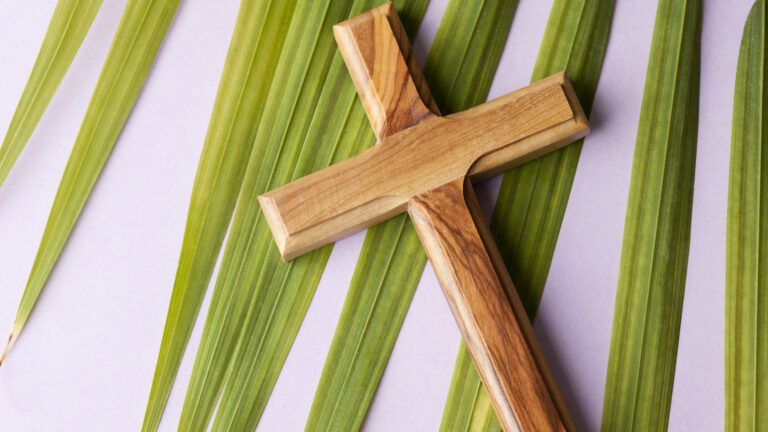Have you ever watched a child do something exactly like one of his or her parents? Some physical features and mannerisms are genetic, of course, but others can only have been acquired through observation and imitation. For example, I recently watched, amazed, as my grandson cut the sandwich he made for his school lunch while it was in a plastic baggie. He didn’t pull that practice out of thin air; he said it’s how his mom does it, to make clean-up easier.
What if we can do something similar by paying a little attention to the prayer habits of Bible heroes?
1) Hide Your Face
Take Moses, for example. On encountering the burning bush in the wilderness, God instructed Moses, “Take off your sandals, for the place where you are standing is holy ground” (Exodus 3:5, NIV). After God identified Himself as “the God of your father, the God of Abraham, the God of Isaac and the God of Jacob,” Moses “hid his face, because he was afraid to look at God” (Exodus 3:6, NIV). Do you ever pray that way? Do you ever cover your face with your hands as you pray? Or even bow down with your face to the ground?
2) Raise Your Arms
On a much later occasion, God’s people were under attack, so Moses went up on a hill overlooking the battle. He lifted his hands—perhaps in a gesture of prayer or blessing. While his arms were raised, the Israelite army prevailed. So Aaron and Hur positioned themselves on either side of Moses to help him keep his hands aloft until the battle was won (see Exodus 17:8-16). Why not try lifting your hands in prayer, raising them toward heaven? Or perhaps cupping your hands as if to receive from God?
3) Ask Boldly
The prophet Elijah seemed to boldly ask God for big answers to prayer. He asked for no rain for three and a half years. Then he asked for it to rain again (1 Kings 17–18). On Mt. Carmel, Elijah challenged the prophets of Baal to a contest and, after they failed, stepped out and prayed, “Lord, the God of Abraham, Isaac and Israel, let it be known today that You are God in Israel and that I am Your servant and have done all these things at Your command. Answer me, Lord, answer me, so these people will know that You, Lord, are God, and that You are turning their hearts back again” (1 Kings 18:36-38, NIV). God answered Elijah’s prayer that day with literal fire from heaven. How boldly do you pray? Do you shy away from asking God for “big” things? Or do you pray like Elijah?
4) Sing Your Prayers
Many of David’s prayers have been preserved to this day because he didn’t just “say them,” he sang them. “I will sing the Lord’s praise, for He has been good to me,” he vowed (Psalm 13:6, NIV). He even sang about singing his prayers to God: “I will sing a new song to You, my God; on the ten-stringed lyre I will make music to You” (Psalm 144:9, NIV). So why not try praying like David? Sing a hymn to God. You can also make up your own tune to one of David’s psalms. Or just put the prayer of your heart into a melody.
5) Pray Three Times a Day
Though a royal decree had recently made his action illegal, “Three times a day [Daniel] got down on his knees and prayed, giving thanks to his God, just as he had done before” (Daniel 6:11, NIV). His practice sent him to the lion’s den, but also contributed to victory over the lions—and the royal decree. Do you pray that way? Three times a day? Perhaps a pattern of morning, noon and evening prayer (see Psalm 55:17) will prepare you for some lion-taming victories of your own.
6) Pray on Your Roof
Acts 10:9 describes a prayer practice of the Apostle Peter: “About noon the following day… Peter went up on the roof to pray” (NIV). Houses in that time and place often had flat roofs that provided cooler and calmer surroundings than the house below (where food was cooked, business conducted and even animals were kept). Do you have a special place of prayer? A quiet place? Why not try praying like Peter and find a spot that encourages focus and fervency in prayer?
These are just six simple prayer habits of some heroes of the Christian faith. We can learn much not only by imitating them but also by paying attention to the practices of others who pray often and well.
What prayer habits have you learned from others?





